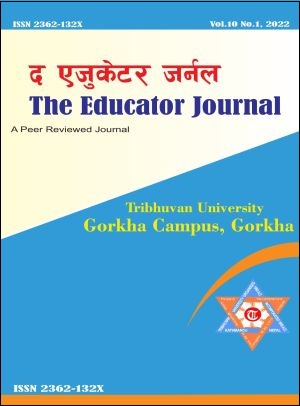Native Language in English as a Foreign Language Classes: Teachers’ Lived Experiences
DOI:
https://doi.org/10.3126/tej.v10i1.46734Keywords:
contexts, EFL classroom, native language, reasons, strategiesAbstract
Along with the prevalence of post-method pedagogy in English language teaching, the use of learners’ native language (NL) in English as a foreign language (EFL) context has become a vital issue. Considering the issue, this article aims to dig into the phenomenon of NL usage with special reference to Nepal. For achieving this objective, I followed a phenomenological study design to explore the teachers’ lived experiences. I purposively selected ten university English language teachers to observe their EFL classes based on age, qualification, gender, and teaching experience. The information obtained from the unstructured classroom observation led me to the four themes such as conditions, reasons, strategies and consequences. The findings reveal that most informants used NL for better and more efficient communication; they used NL in different ways; and learners were at ease, self-assured, and pleased with NL usage. This implies that EFL teachers need to use the learners’ NL sparingly.




